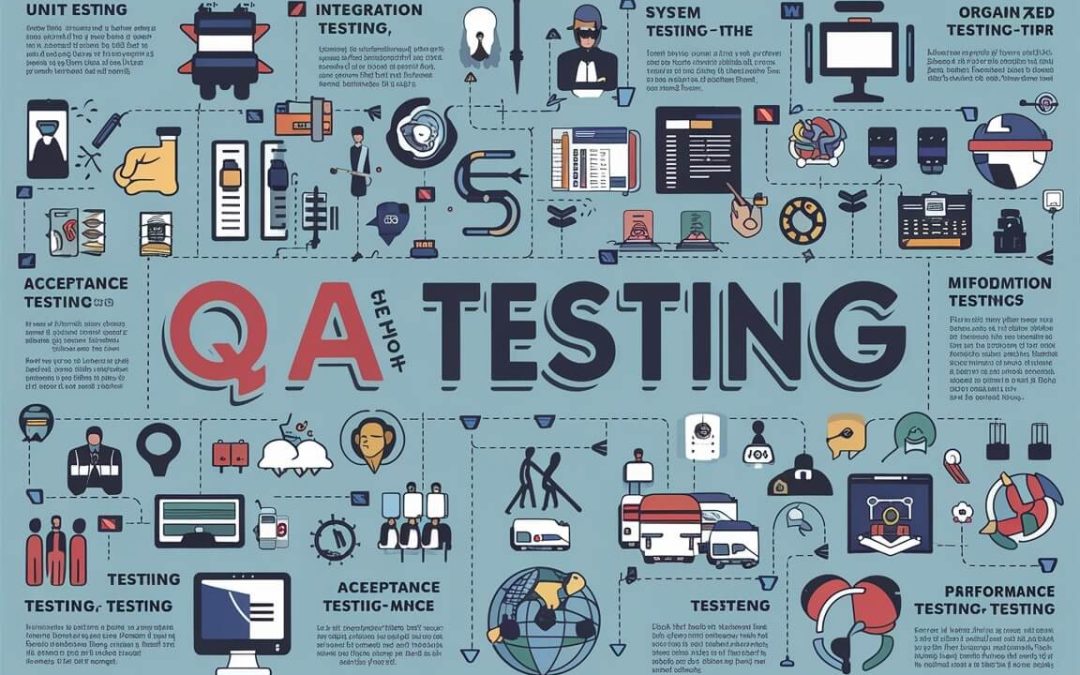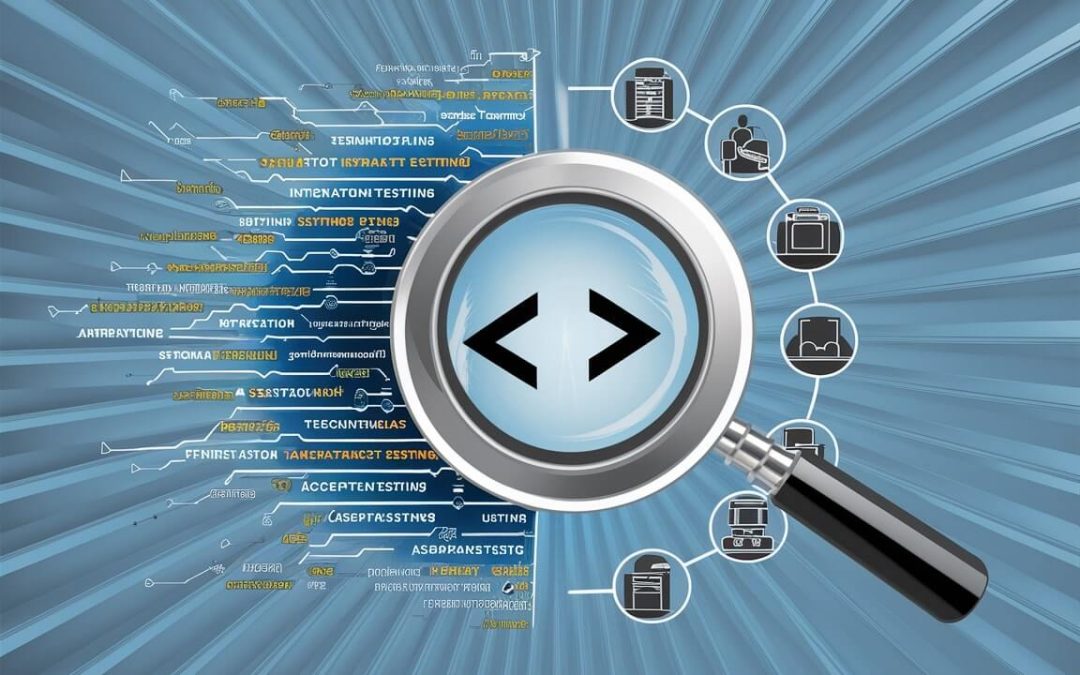Is your organization struggling to deliver personalized, anticipatory experiences amid growing customer expectations?
By incorporating forecasting and automation, artificial intelligence (AI) is changing customer relationship management (CRM).

Image Source – https://geekflare.com/
CRM systems such as Microsoft Dynamics CRM developers grow more sophisticated for human-centric client contact using Azure Cognitive Services.
Let us dive in and look at how Azure AI can power next-generation consumer experiences.
Advantages of Using AI-Powered CRM:
Traditional CRM systems rely on business rules and historical data to deliver experiences.
But AI capabilities like machine learning allow CRM to continuously adapt by understanding context and user needs. Key benefits include:
- Predictive recommendations – Proactively suggest relevant products, services and actions to customers based on interactions so far.
- Contextual engagement – Communicate through the right channel at the right time based on customer profile and journey stage.
- Hyperpersonalized content – Generate individualized promotions, offers and messaging tailored to customer interests.
- Intent and sentiment analysis – Determine customer needs and satisfaction more accurately from interactions using natural language capabilities.
- Automated tasks – Take routine manual processes like data entry and document processing and automate those using bots.
- Enhanced self-service – Enable customers to find answers, check status and resolve issues easily with virtual agents.
- Human-in-the-loop AI – Augment human agents with AI-generated insights for stronger connections and empathy.
With precise customer understanding and predictive engagement powered by AI, CRM delivers greater value.
How can Azure Cognitive Services improve CRM intelligence?

Image Source – https://azure.microsoft.com/
Azure Cognitive Services provides pre-built AI features that can be incorporated smoothly into Dynamics 365 and other CRM solutions. Key ways Azure makes CRM more intelligent include:
- Natural language processing – Unlock text analytics to extract meaning, sentiment and intent from customer emails, chats, voice and documents.
- Computer vision – Enable multimedia understanding through techniques like optical character recognition to process invoices and business cards.
- Recommendations – Serve up tailored product, content and service suggestions based on past interactions and predicted needs.
- Chatbots – Humanize conversations with bots that understand natural language, handle questions and aid transactions.
- Customer profiling – Build precise profiles incorporating demographics, psychographics, social data, preferences and behaviors.
- Sales forecasting – Improve predictions using AI models that ingest pipeline, account and activity data.
- Marketing analytics – Gain sharper audience and campaign insights using AI techniques like clustering and anomaly detection.
- Sentiment tracking – Continuously analyze feedback, surveys, and reviews to gauge satisfaction and emotional tone.
Infused with Azure machine learning, CRM systems become more intuitive and predictive.
How can Dynamics 365 leverage Azure AI for sales productivity?

Image Source – https://tridentinfo.com/
AI unlocks significant productivity improvements for sales teams by giving insights that help turn prospects, close transactions faster, and increase accounts. Dynamics 365 Sales services can use Azure services such as:
- Lead score – Use AI models based on previous flow and conversion data to identify and rank promising leads.
- Interaction analytics – During sales calls, capture insights to highlight critical moments and assess call sentiment.
- Wise suggestions – Recommend the best next steps proactively during deal progression based on past win/loss statistics.
- Predictive forecasting – Improve the accuracy of sales projections using Monte Carlo simulations on pipeline data.
- Relationship analytics – Discover connections between prospects and customers to uncover expansion opportunities.
- Data enrichment – Augment account and contact profiles with demographic, demographic and social data using Azure Cognitive Search.
- Competitive tracking – Apply text analytics and web crawling to extract insights about competitor offerings, positioning and messaging.
- Document analysis – Extract text and data from contracts, RFI/RFPs and invoices to auto-populate CRM.
With Azure AI, sales teams can focus on building relationships and closing, not data entry.
How can AI transform customer service experiences?
Delivering satisfying customer service hinges on understanding needs and resolving issues promptly. With Azure Cognitive Services, Dynamics 365 Customer Service enables:
- Intelligent chatbots – Deflect common inquiries and requests to self-service virtual agents that operate 24/7.
- Agent assistance – Guide agents with suggested knowledge articles, FAQs and responses drawn from past conversations.
- Sentiment detection – Identify frustrated customers based on language tone so agents can take de-escalation steps.
- Query understanding – Categorize incoming questions accurately to route to the right agent pools using natural language capabilities.
- Case auto-classification – Tag cases with common reasons and sentiment using text analytics for faster processing.
- Smart document processing – Extract meaning from emails, PDFs, images and printed text to automatically update customer records.
- Algorithmic sequencing – Assign cases to agents based on workload, skills, and previous case history to resolve cases faster.
- Future optimal action – Provide agents with the best responses, offers, or resolution steps based on statistical models.
Service teams may delight consumers by using AI-powered automation and insights.
How might artificial intelligence improve marketing personalization?
Customers today want hyper-relevant, personalized messages and offers. Azure is used by Microsoft Dynamics CRM developers marketing to enable:
- Individualized content – Generate personalized email content, webpages and ads for each recipient based on interests.
- Predictive lead scoring – Identify high-probability leads for sales follow-up based on past behaviors and interactions.
- Social pattern analysis – Extract trends and connections between consumers from social networks to map customer journeys.
- Campaign optimization – Continuously improve campaign targeting and messaging using real-time campaign analytics.
- Smart audience segmentation – Create dynamic segments based on demographics, interests and engagement using machine learning.
- Recommendation engine – Serve up contextual next-best content, product or offer recommendations.
- Customer data platform (CDP) – Build unified customer profiles incorporating siloed data from across channels and touchpoints.
- Audience lookalike modeling – Discover new audiences that closely resemble existing high-value segments based on attributes.
With Azure AI capabilities, marketing can deliver behavioral-based personalization at scale.
How can voice analytics optimize customer service?
Interactions with call centers generate valuable customer insights. With Azure voice analytics, organizations can:
- Transcribe calls – Convert calls into searchable text transcripts using speech recognition to analyze interactions.
- Categorize calls – Use natural language processing to tag calls by topic, questions, complaints and other attributes.
- Retrieve insights – Uncover discussion topics, pain points, churn drivers, agent performance and more through content analysis.
- Measure sentiment – Detect customer moods like frustration and satisfaction during calls based on tone.
- Guide agents – Prompt agents with relevant information, answers or escalation steps based on real-time call analysis.
- Track resolutions – Confirm issues are resolved completely before closing tickets through keyphrase identification.
- Create workflows – Trigger actions like sending a survey after a bad service interaction automatically.
- Secure data – Protect sensitive information through the redaction of credit card numbers and health data from transcripts.
- Boost compliance – Meet quality assurance and regulatory requirements with complete call records and analysis.
- Improve processes – Pinpoint inefficiencies around issue root causes, transfers and escalations.
With rich conversational analytics, organizations gain actionable insights to improve customer service experiences.
How can Dynamics 365 predict churn using AI?
Customer churn severely impacts business growth and profitability. With AI, Dynamics 365 applies predictive signals to:
- Evaluate risks – Assess the likelihood of churn for each customer based on behavioral, transactional and demographic data.
- Alert retention teams – Notify when high-value customers show signs of dissatisfaction or changes in loyalty.
- Recommend actions – Prompt best next actions to re-engage customers, whether promotional offers, service improvements or reassigning account managers.
- Understand drivers – Continuously identify factors that most influence customer churn through machine learning correlations.
- Enrich data – Incorporate external data like social media activity and industry events to detect early warning signs.
- Simulate scenarios – Model “what-if” scenarios to estimate the impact of different retention strategies.
- Personalize content – Deliver tailored promotions and incentives to customers flagged for churn risk.
- Score leads – Identify new prospects with low long-term retention probability to refine targeting.
- Evaluate effectiveness – Quantify the ROI of retention programs by linking spending to churn rate reductions.
- Refine strategy – Double down on interventions that show success in lowering churn based on data.
With AI-driven churn analysis, organizations can apply resources more precisely to maximize retention.
How can Conversational AI transform customer engagement?
Chatbots and virtual agents are redefining customer interactions using natural language and speech. With Azure AI, Dynamics 365 enables:
- Natural conversations – Understand free-form customer questions and requests using LUIS language capabilities.
- 24/7 availability – Chatbots handle common queries instantly at any time through web, mobile and voice channels.
- Conversational UI – Humanize bot interactions with sentiment, follow-up questions and clarifications.
- Omni-channel – Meet customers on the channels they prefer – phone, web, SMS, email, messaging apps and smart speakers.
- Scalable support – Bots offer consistent answers for high-volume inquiries, deflecting calls from live agents.
- Personalized responses – Provide tailored guidance, product suggestions and promotions based on individual user profiles and past interactions.
- Seamless hand-offs – Escalate complex requests seamlessly to human agents with full interaction context.
- Self-learning – Continuously improve the knowledge base and response quality through machine learning and feedback loops.
- Workflow automation – Complete routine tasks like appointment scheduling, payment collection and information lookup automatically.
- Analytics integration – Get conversational insights into topics, trends, and sentiment and agent hand-offs.
How can Dynamics 365 Sales make use of predictive forecasting?
Manual forecasting is inefficient, prone to bias and inaccurate. With Azure AI, Dynamics 365 Sales enables:
- Automated projections – Generate sales forecasts instantly without manual number crunching.
- Revenue attribution – Understand how each opportunity contributes to overall pipeline projection.
- Trend analysis – Compare forecast trends over time to adjust strategies early.
- Confidence scoring – Gauge certainty of projections based on completeness of opportunity data.
- Risk assessment – Identify high-risk opportunities based on improbable close dates, value gaps and competition.
- Market indicators – Factor external indicators like seasonality, economic climate and industry trends into forecasts.
- What-if modeling – Adjust assumptions on close rates, sales stages and deal sizes to simulate outcomes.
- Pipeline optimization – Prioritize high-value opportunities and resource allocation to maximize revenue.
- Sales coaching – Provide projections to individual reps to inform activity and pipeline goals.
- Interactive visualization – Explore and share forecasts using intuitive dashboards and graphics.
With AI-powered forecasts, sales leaders gain visibility into revenue outlooks and drivers.
How can knowledge management be enhanced with AI?
Customer service hinges on agents having quick access to solutions. With Azure AI, knowledge management is improved by:
- Consolidating data – Gather dispersed article libraries, emails, chats, manuals and call logs into a unified knowledge base.
- Semantic search – Enable natural language search to surface precise results and recommendations.
- Suggested content – Prompt agents with relevant articles and responses in real-time through case analysis.
- Auto-tagging – Classify and tag diverse content types using text analytics for easy discovery.
- Version control – Automatically track article revision history with notifications on outdated versions.
- Smart authoring – Check new knowledge entries for grammar, readability and relevance before publishing using language models.
- Case routing – Match incoming cases to expert agents based on past case resolutions and knowledge strengths.
- Insight extraction – Analyze interactions to identify trending issues and knowledge gaps to address.
- Translation – Provide articles, guides and materials in multiple languages through automated translation.
- Impact tracking – Quantify knowledge base usage and effectiveness in improving ticket resolution rates.
With knowledge powered by AI, customers get consistent and satisfactory outcomes faster.
How can AI improve e-commerce personalization?
Online retail depends heavily on personalized recommendations and tailored experiences. AI capabilities in Dynamics 365 Commerce enable:
- Individualized promotions – Tailor discounts, coupons, and incentives based on transaction history and product affinity.
- Recommendation engine – Suggest relevant products on landing pages, cart, and checkout using collaborative filtering algorithms.
- Segmentation – Craft campaigns and content that resonates with audience micro-segments based on past behaviors.
- Predicting demand – Forecast site traffic, product demand and inventory needs using time series forecasting models.
- Optimization – Continuously A/B test merchandising strategies like pricing, promotions, and store layouts to maximize conversions.
- Customer data platform – Build unified profiles from CRM, e-commerce, support, and external data sources.
With AI, e-commerce experiences feel tailored, relevant, and responsive.
How can AI enable proactive customer support?

Image Source – https://news.sap.com/
Being reactive causes organizations to lose customers. With Azure AI, support teams can be proactive by:
- Monitoring usage – Detect potential issues like feature underuse, workflow bottlenecks, and adoption lags.
- Evaluating sentiment – Analyze user surveys, reviews and feedback to gauge satisfaction levels.
- Estimating churn – Calculate individual customer churn risk based on engagement patterns.
- Generating alerts – Notify support when indicators like repeat errors, negative sentiment or inactivity are detected.
- Prescribing solutions – Recommend specific remediation steps tailored to customers based on analytics.
- Enabling self-correction – Guide users through troubleshooting workflows or automatically trigger fixes.
- Sending notifications – Communicate proactively if customers show early signs of needing assistance.
- Scheduling outreach – Book appointments with at-risk customers for training, consulting, or tech reviews, before issues grow.
- Creating nudges – Encourage desired behaviors like feature adoption with personalized prompts and tips.
- Tracking outcomes – Quantify the business impact of proactive support through metrics like satisfaction, retention, and usage.
With AI-powered monitoring and prediction, support teams can delight customers by reaching out before issues arise.
Ready to Transform Customer Experience?
By infusing CRM systems like Dynamics 365 with the power of Azure Migration Services, organizations can redefine customer engagement with predictive, contextual, and hyper-personalized experiences.





